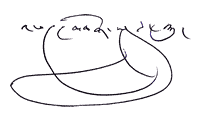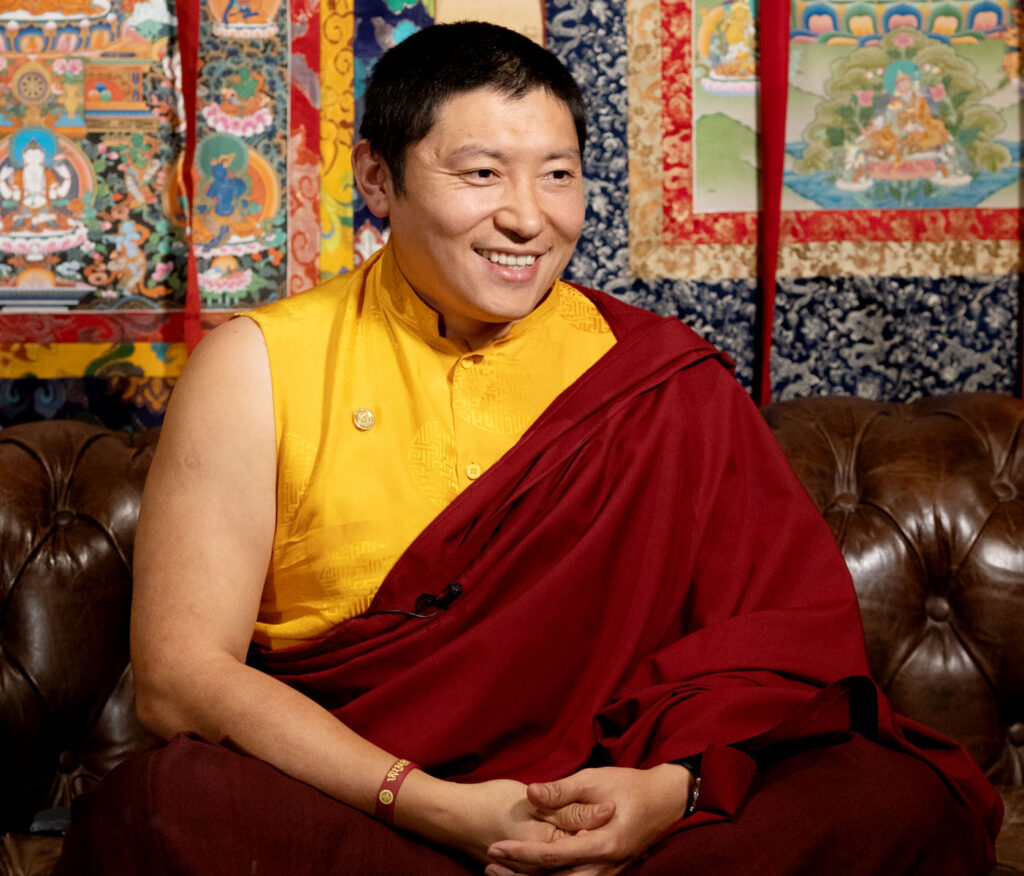Dear friends near and far
As always, I hope you have been well and happy this past month. Today on the Guru Rinpoche day of the sixth Tibetan month, which marks the anniversary of Chökhor Duchen (the first teaching of Buddha Shakyamuni), I would like to talk about conduct. The way we conduct ourselves in body, speech, and mind is extremely important, especially if we consider ourselves to be so-called ‘dharma practitioners’. Good conduct is not always as simple as we may think. Sometimes you might think that simply acting in a way that pleases others, for example in accord with the conventions of society, is correct conduct, or that staying alone and not interacting with anyone is correct conduct. But it is really not as simple as that. Conduct refers to all of our actions of body, speech, and mind – how we act, talk, and think.
It is now 9.30 am here in Kathmandu and having just finished breakfast I am sitting in my room in quite a bad mood sunk in deep thoughts, asking myself, “Am I really making good use of my time or not?” “Am I really conducting myself well or not?” In this kind of mood, it is not going to help at all if someone comes and tells me to stop being so angry, to lighten up or something. The only thing that can really help with these kinds of things is one’s own practice, and in particular one’s daily practice sessions, which means placing your butt down on the cushion for as long as you can and focusing one-pointedly on your practice, whatever it may be. During your practice sessions focus solely on your practice and nothing else, but outside of your sessions (before and after) it is very important to spend some time reflecting and thinking about your conduct, any mistakes you’ve made and so on.
In short, there are two types of conduct: conduct that harms others together with the basis for that harm, and conduct that benefits others together with the basis for that. Conduct that harms others refers to the ten non-virtues, which I am sure you all know. They are:
- Killing
- Stealing
- Sexual misconduct
- Lying
- Divisive speech
- Harsh speech
- Gossip
- Envy
- Malice
- Wrong view
The conduct that benefits others is the four means of magnetizing (generosity, speaking pleasantly, meaningful conduct, and consistent conduct) and the like.
We need to avoid harmful conduct and engage in beneficial conduct. When we talk about avoiding the ten non-virtues, it is important to think not just of the root ten non-virtues but also their associated actions. For example, just avoiding killing is not enough; beating, hitting, or physically hurting someone also pertains to the non-virtue of killing and we need to avoid all of these kinds of actions. Likewise, even if you don’t literally steal something, out of jealousy or resentment or another emotion you might do something to prevent someone from enjoying the things they have. This is an associated aspect of stealing, and something we need to avoid doing. It is the same with sexual misconduct. Making inappropriate remarks to someone, looking at them in an inappropriate way, or writing all sorts of things in emails or on Facebook―that is all part of sexual misconduct.
So it is not enough to just read through the list of the ten non-virtues and leave it at that; we need to consider them in a much broader and subtle sense and reflect on all of the different actions of body, speech, and mind associated with each one of them.
As for the non-virtues of speech, you may not directly lie to someone, but speaking in a circuitous way and not being completely upfront is also a kind of lying since you are not being completely honest. Similarly, though you might not say anything verbally to create problems between people, you might give someone a strange look or act in a slightly suspicious way that makes them then doubtful and think, for example, that maybe you were saying something behind their back or were just told something bad about them. This is an associated aspect of divisive speech. As for harsh speech, basically anything you say without a kind and positive motivation can become a kind of harsh speech and hurt other people’s feelings. As for gossip, any meaningless and empty talk can be considered a part of gossip.
Then we have the three non-virtues of mind, the first of which is envy. This applies to envy in terms of the dharma as well as in the mundane world. Basically it is attachment. This doesn’t mean though that you shouldn’t have hopes and wishes, like wishing for enlightenment and thinking, “How amazing it is that so many people have attained accomplishment, like the mahasiddhas of India! If only I could be like them!” It means you should not fall into the trap of envying and becoming attached to others’ things, whether they be material possessions or spiritual qualities.
Malice is actually any thought, and also the actions you then perform motivated by that thought, that lacks mindfulness, awareness, and carefulness. Because any thought you have that lacks these three qualities is naturally going to end up harming you, the reason being that it will naturally lead to the negative emotions and a lack of benevolence, and that will then also harm others. When we are unaware of our own thoughts and emotions (due to a lack of mindfulness, awareness, and carefulness) then any thought is potentially a kind of malice and will have negative consequences.
Then finally we come to wrong view. Often practitioners think that just having some knowledge of the dharma is an antidote to wrong view, but actually no. If you fail to check your own mind, whether you are really acting and thinking in accord with the dharma or not, you have already fallen into a part of wrong view. For that reason, knowledge alone is not enough; you need to apply that knowledge and check for yourself whether you are making progress, whether you are changing or not.
This was about conduct. As I said, there are different types of conduct, but in brief they can be condensed into harmful conduct which is what we need to avoid and beneficial conduct which is what we need to take up. Harmful conduct can be condensed into the ten non-virtues, but it is extremely important that we contemplate not just the root ten non-virtues but also their associated aspects, which are much more subtle, as I have just mentioned. Being in a bad mood myself this morning I saw several of these associated non-virtues in myself, and motivated by that I thought to share this highlight and reminder on conduct with you.
For all of you receiving this email―friends, acquaintances, students, or strangers―I aspire that you may be able to conduct yourself well, that you have an abundance of happiness and well-being, and that through your conduct you may be able to bring about benefit for yourselves and countless others.
May our minds turn to the dharma,
—Gampopa
May our dharma become the path,
May the path clarify confusion,
And may confusion arise as wisdom!
May the strength of virtue increase!
—Rigdzin Jikme Lingpa, Entering the City of Omniscience
May the power of aspiration grow!
May negativity be swiftly purified!
Sarva Mangalam,

Phakchok Rinpoche






Responses